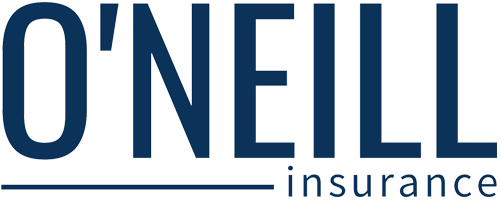Of all the rules and regulations your Ohio food company complies with, this one may be the most difficult to meet.
Why?
Because the design and implementation call for a significant amount of experience, education, training and time.
That is, if you want it to be done right.
I’m referring to what’s called a HACCP plan.
HACCP meaning Hazard Analysis and Critical Control Points.
It addresses food safety by analyzing and controlling biological, chemical and physical hazards from raw material production, procurement and handling to manufacturing, distribution and consumption of the finished product.
In short… it’s a food safety management system.
Lately there seem to be more questions than answers from Ohio food companies on HACCP, so I thought I’d turn to my friend and expert, Dr. Michele Pfannenstiel of Dirigo Food Safety for some insight.
O’Neill: Maybe tell me a little bit about yourself and the work you do at Dirigo Food Safety?
Dr. Pfannenstiel: Dirigo Food Safety is a consultant company based in Maine that works nationally and globally to help small producers and processors get more clients and make more money by being able to cope with the FDA and the USDA and local regulatory authorities that sometimes stand in the way between them and getting their local delicious foods out in the universe.
O’Neill: What is your subject-matter expertise?
Dr. Pfannenstiel: My subject-matter expertise is in hazards associated with foods and writing of the plans that regulatory agencies need to see in order for businesses to let them know that they have dealt with those tasks… I help small businesses understand what the hazards of their foods are and write the plans that regulators can understand so they can go ahead and produce the food safely.
Before we go in the details of HACCP, let’s find out if you’re even required to have a documented food safety plan.
We turned that question to Dr. Pfannenstiel:
O’Neill: Is every company required to have a written plan?
Dr. Pfannenstiel: Almost every company that is putting food into the food stream needs to have some sort of documented food safety. For the smallest companies, some of that is not required until September 2018. I recommend those companies get started now because their system needs to be written and functioning by September.
So now that you know you’re required to have a documented food safety plan, you’re probably wondering where to start.
While a simple google search may offer you a wide array of templates and step-by-step guides to creating your HACCP plan, it may not be the best food safety approach for your business.
You can consider piecing together the resources to write your own HACCP plan, or you can hire a qualified and credible consultant to write it for you.
My recommendation: hire a consultant!
It is not worth the risk of being penalized for non-compliance or even worse, affecting the safety of your product.
And while it may cost you more up-front, it can save you in the long run.
Dr. Pfannenstiel: If you hire a consultant to write your safety plan, it’s considered a depreciable asset because it’s generally something that lasts more than a year and costs more than $1,000.
So, if companies start looking at it as part of their asset base of their business, they may start taking a different look on your business because it impacts the balance sheet.
If companies look at it like that, then they’re maintaining an asset. Every time they go back and look at a standard operating procedure and they are adding value to that standard operating procedure or that HACCP plan by making it better.
It all comes down to implementation.
Whether you decide to write the HACCP plan yourself, or hire a consultant – the strategy behind your implementation of HACCP is key.
Dr. Pfannenstiel: A lot of my goal with clients is to let them stand on their own.
I come in, write the plan, write the standard operating procedures and do all the necessary training- and then I’m here if you need me, but go try it on their own.
In other words…
Your team may be trained for coordinating its implementation – but actual implementation is up to you.
The continual application of monitoring, recordkeeping and corrective action procedures are important aspects of the plan’s execution, and employees responsible for these activities should be trained accordingly.
It’s time to get started.
The safety of your food product is critical. By designing and implementing a quality food safety plan, you are setting your Ohio food company up for long-term success.
Whether you have an HACCP plan that needs updated or revised, or you still need to develop and deploy your HACCP plan, we’re here to support you and connect you with the right people and resources.
I’m Pat O’Neill, a Food and Agribusiness Recall Protection Specialist here at The O’Neill Group, and I would be happy to provide for you any risk management tools and resources to help you get started on your food safety management system. Call me at (330) 334-1561 or email me at ptoneill@oneillinsurance.com.
If you’re interested in learning more about Dr. Michele Pfannenstiel, President and CEO of Dirigo Food Safety – you may find more information at www.dirigofoodsafety.com. You can reach her at (207) 517-3920 or email her at michele@dirigofoodsafety.com.
{{cta(’22f11e76-6328-4c70-b839-5fa1fbfbd94e’)}}
This article was adapted from Zywave. This is not intended to be exhaustive nor should any discussion or opinions be construed as legal advice. Readers should contact legal counsel or an insurance professional for appropriate advice.

